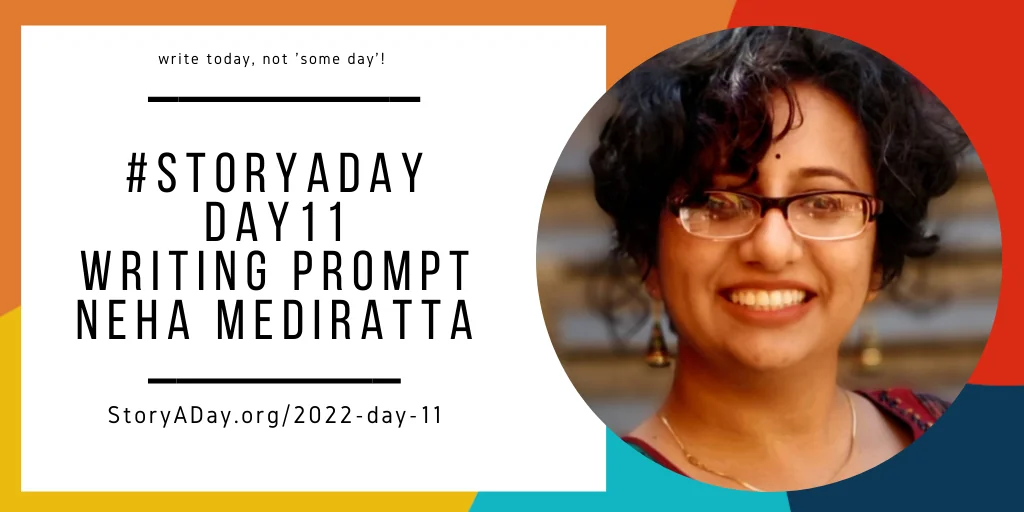Yesterday we talked about how to decide what you’re supposed to be writing. You can read it here, but the big lesson was: write a lot. Try new stuff. Don’t let your inner-anti-cheerleader stop you.
Well that’s all very well, but what if your life is busy? When are you supposed to find the time, not to mention the discipline, to sit down and write?
The Lie That You Can Find Time To Write
You can’t.
No one finds time to write. Or to play the guitar. Or to be a rockstar. Or to be a successful investor.
You make time.
Everyone successful, fulfilled person who ever lived, made time for the thing that was important to them.
Justifying The Time
I could give you all kinds of tips for scraping together some free time to write (delegate chores, turn off the TV, say no to invitations to go out) but that’s not the hard part.
The Hard Part
The hard part is convincing yourself that you are allowed to take the time to write.
Writing is personal. You do it alone. You don’t look like you’re working hard. You look like you’re surfing the internet or sulking in your bedroom or shirking your responsibilities.
Worse still, you might feel that way inside.
But I’m here to tell you: if you want to write, you must write.
When you’re writing, no matter how hard it is, you are more truly yourself than at any other time.
And when you finish a writing session, no matter how exhausted or wrung-out you feel, the rest of your life seems just a little bit easier. You are fulfilled. Your mind is clear. You have a sense of achievement. You are a better person when you’re writing.
And that’s the real payoff.
Not internet celebrity. Not publishing contracts. Not the legions of fans. Not the multi-millions in movie-rights sales.
The actual payoff for writing is that you are happier.
Which makes you a better person to be around.
Convince Yourself, Convince Your Crew
You have to try this for yourself to really experience it. And once you have, feel free to point it out to the people around you. If they’re smart, they’ll become accomplices in making time for you to write. If you keep at it long enough, there will come a day when you’re rampaging around the house barking at everyone and, instead of barking back, one smart housemate will say, “Hey, why don’t you go and grab a notebook. You need to be writing.”
Trust me. It happens. And if it doesn’t, perhaps you need to surround yourself with smarter, kinder people.
Resources
Here are some resources to help you convince yourself that your writing is not only important but vital to your continued existence — and some suggestions on how to overcome three common obstacles.
If you’re wondering why you can’t get anything written when you’re setting aside a whole 20 minutes every lunchtime, watch this video from John Cleese. It’s his process for being creative. There may be times when 20 minutes can be productive for you, but there are other times when you will need to listen to Mr Cleese’s advice. https://vimeo.com/89936101
If you can’t get past the suckiness of your first drafts, you need to watch this interview with Ira Glass (again). I get the impression he’s a bit bemused that this is rapidly becoming what he’s most famous for, but it’s because it is so very, very true. (Hint: You need to write a lot!) https://youtu.be/PbC4gqZGPSY
If you don’t believe me that your art is worth doing for its own sake (for your sake), then you need to watch this talk by last year’s StoryADay Guest of Honor, Neil Gaiman. Watch it now. https://youtu.be/ikAb-NYkseI
When The Pencil Meets The Paper
Of course, having bought yourself time to write, doesn’t make it go easily.
If I’ve convinced you that you need to write a lot and that you need to make time for your writing, your next question is probably going to be: but how do I turn all this time and dedication into actual stories?
Tomorrow we’ll talk about The Care and Feeding of Ideas, and how to turn those ideas into fully-fledged story drafts.
Until then: do you have a friend who’s always talking about wanting to write, but never quite getting around to it? Why not share this post with that person? Maybe, between the two of us, we can get them to where they need to be and you two can spend blissful afternoons on writing dates, instead of kvetching about how much writing you’re not doing. Share this now!





![[Write on Wednesday] Eons](https://storyaday.org/wp-content/uploads/2014/02/Screen-Shot-2014-02-10-at-1.49.51-PM.png)

![[Write On Wednesday] Time Slowed Down](https://storyaday.org/wp-content/uploads/2014/03/Screen-Shot-2014-02-10-at-1.35.17-PM.png)
